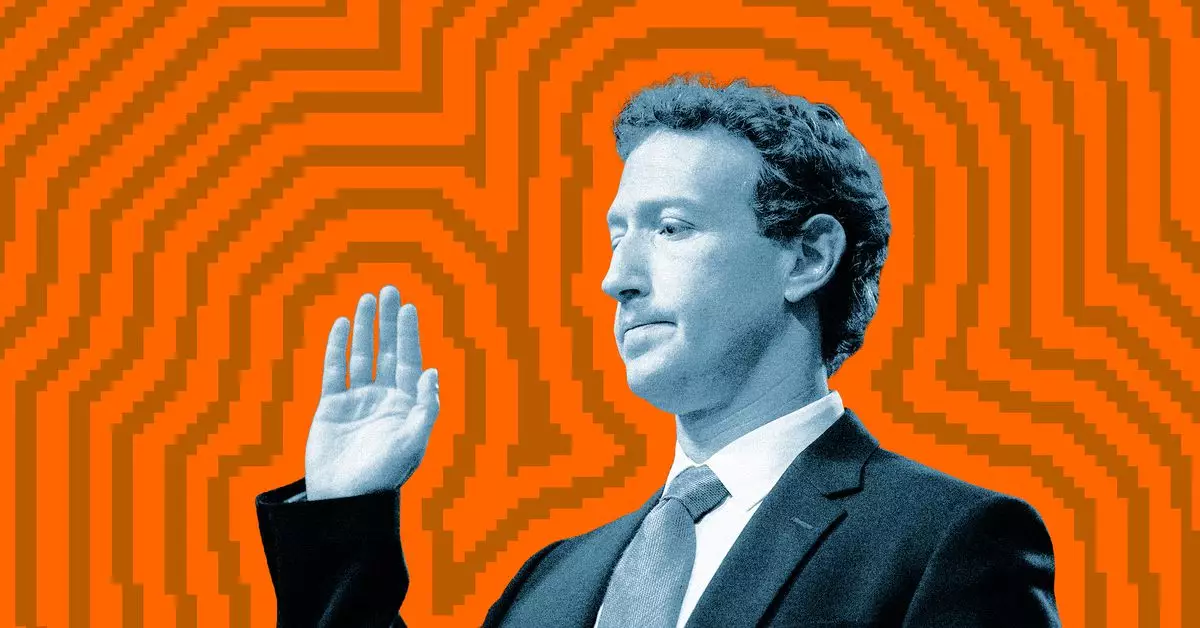In an era where technology and politics are more intertwined than ever, notable figures in both realms continue to cross paths, often sparking debates that resonate across societal lines. Recently, Mark Zuckerberg, the CEO of Meta, found himself at the center of scrutiny after his dinner engagement with President-elect Donald Trump at Mar-a-Lago. This unexpected pairing of a tech mogul and a polarizing political figure raises essential questions about the role of technology in shaping democratic processes.
Zuckerberg’s meeting with Trump, as noted by Meta spokesperson Andy Stone, is described as a significant moment for the future of American innovation. This statement hints at an attempt to project a collaborative image in the face of growing concerns about tech companies’ influence on democracy and civic engagement. The dinner was likely intended to connect two powerhouses in their respective fields and perhaps to discuss ways in which Meta could play a more constructive role in the political landscape.
However, the context surrounding this meeting cannot be overlooked. Zuckerberg has faced backlash regarding Facebook’s handling of misinformation during the 2020 presidential race. Critics have often argued that the platform’s algorithms exacerbated divisions within the electorate rather than fostering healthy dialogue. Thus, the optics of a meeting between Zuckerberg and Trump, a figure often associated with polarizing rhetoric, come with challenges. Can Zuckerberg effectively communicate a commitment to responsible governance in tech while sharing a table with a controversial political leader?
The relationship between powerful tech figures and political leaders is fraught with complexity. Zuckerberg’s past actions have contributed to the narrative that technology companies are not merely platforms for information dissemination but also active participants in shaping public opinion. By engaging with Trump, accusations have surged regarding the ethical implications of a tech executive sharing space with a leader who has previously made contentious claims about election integrity and misinformation.
Moreover, it is worth noting that Zuckerberg’s interactions with Trump arise amidst ongoing discussions about accountability in technology. Advocacy groups have vocalized their concerns, demanding stricter regulations on how technology firms participate in political processes. The criticism often extends to Zuckerberg personally, with calls for consequences regarding his perceived leniency towards misinformation on Facebook.
As technology continues to evolve, so too will its interfaces with political leadership. Zuckerberg’s dinner with Trump may serve as a moment of both reckoning and opportunity. For instance, it could set a precedent for future tech-industry engagement in political matters, fostering initiatives that emphasize transparency and responsible innovation. Tech leaders must navigate a tricky landscape where their innovations wield considerable influence over democratic discourse.
While dinner conversations between tech magnates and political figures may initially seem like mere social events, they carry the weight of broader implications. Zuckerberg and Trump’s dinner not only epitomizes the complex relationship between technology and politics but also underscores the urgent need for thoughtful discourse on how best to harness technology in service to democracy. As this dialogue progresses, it will be crucial for all stakeholders to remain vigilant and engaged in ensuring that innovation supports, rather than undermines, the democratic process.

